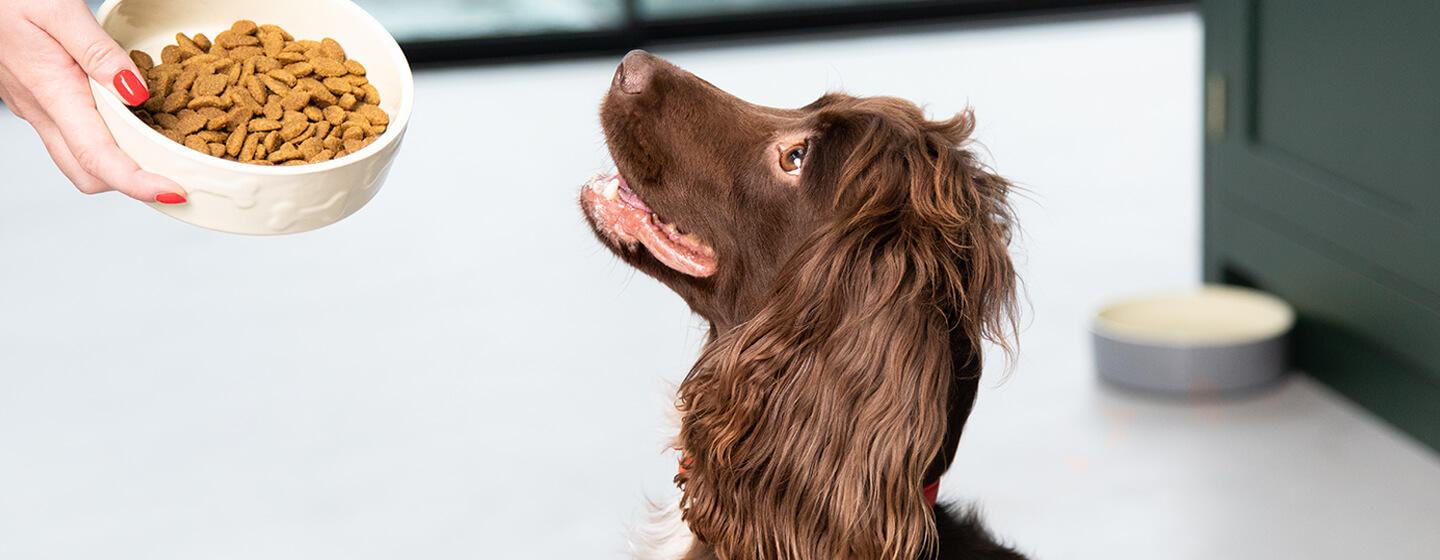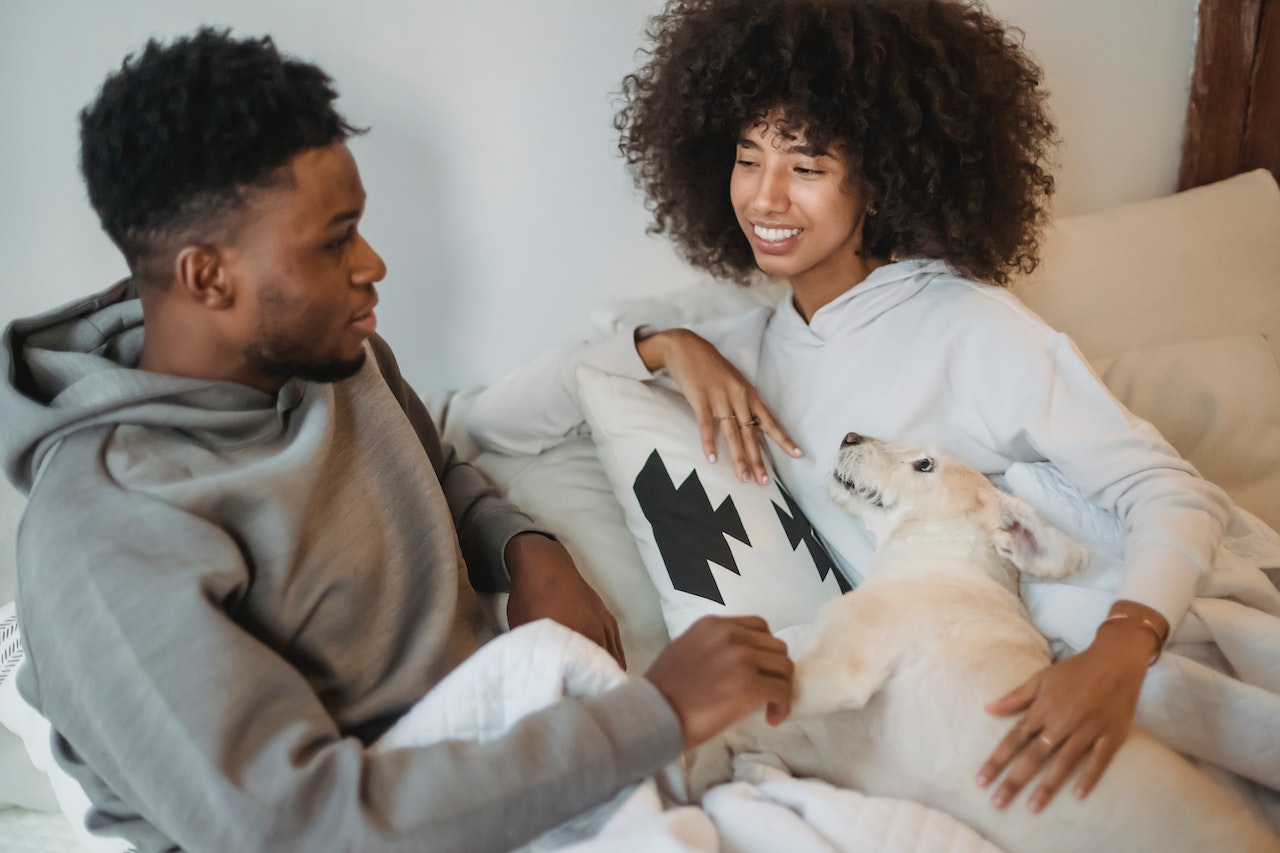
Is your dog always looking at you? No matter whether you’re watching TV or doing some work from home, your dog never seems to take his or her eyes off of you. Unlike humans, dogs find it totally acceptable to look at their owners all day long. Pet owners sometimes find themselves perplexed by their dogs’ prolonged staring since they have no idea what their canine companions are attempting to convey.
Though you can’t read your dog’s mind, their intense gaze is a kind of communication. Dogs, like people, use a variety of glances to convey information, and as a pet parent, you’ll pick up on the cues your dog gives you. Reasons your dog may be looking at you will be discussed.
Reasons 5 Dogs Stare

We have established that dogs may be staring at you for a number of reasons, including an attempt at communication or a simple interest in what you are doing. Do you know? Feel-good chemicals like oxytocin are released when you gaze into your dog’s eyes, and this improves your ability to connect with your companion.
No, it’s not a good idea to look every dog dead in the eyes. If you look at a dog for too long, it may feel threatened and react defensively or aggressively. However, as the owner, you are the greatest judge of whether or not your dog is watching too intently.
When your dog wants to tell you anything, it employs dog body language. A person’s body language might reveal whether or not they are experiencing fear, discomfort, or desire. In addition, it might reveal whether they are at ease and content. This article will discuss the most frequent canine gazing behaviors.
There’s a Message Behind Their Actions
Most animal owners will attest to the fact that it would be helpful if their pets could communicate with them on a human level. Although there are many possible causes for your dog to be looking at you, it may be attempting to communicate with you. If your dog continues gazing at you as you dine in the dining room, it’s either because it’s hungry or because the aroma of the meal you’re eating has piqued its interest. Unless they have been taught otherwise, dogs will typically beg at the dinner table. However, dogs may have learned that staring at their owners as they eat can result in scraps being tossed their way.
A dog’s intense fixation on you may also be a signal that he or she needs something from you, such as a walk at the appointed time or a trip outdoors to relieve itself. Check the time to determine whether you’re missing a crucial portion of your dog’s daily routine if it seems to be looking at you. Because canines operate best with consistent routines, your pooch may give you the “stare down” if walk time is drawing near or has already gone.
Dogs may gaze because they need human attention. It’s possible that your dog will prefer to look at you all day if you’ve been too busy to play with it because you’ve been working or doing chores. Your dog may gaze at you expectantly while you’re watching TV in an effort to get you to give it some attention by petting it or playing with it.
As a kind of resistance to their dogs’ gazing, some pet owners refuse to indulge their animals. In the case of a dog that stares because it wants attention, the owner may opt to ignore the behavior in order to discourage future begging. Since gazing is a kind of communication, intelligent dogs will find other methods to grab your attention. Instead, with little training, you can teach your dog to politely request things like attention, food, and walks. Train your dog, for instance, to get the leash when it’s walk time.
Staring may be a nonverbal communication cue for dogs to share how they’re feeling. Knowing your dog’s body language is essential, since certain dogs, for example, may gaze when they are feeling scared or hostile. Dogs who stare intensely at their owners and seem tight and rigid at the tail may be showing signs of anger or territoriality. If your dog resource guards, it may stare you down and stand its ground when you get near its treat, bone, toy, or other possession in the hopes that you won’t attempt to steal it.
Dogs may also use the staring expression to convey happiness. As a sign of their undying devotion, your dog may gaze into your eyes with adoration. As we’ve already established, making eye contact with you may boost your partner’s oxytocin levels (often known as the “love hormone”). At the end of the day, your dog may be gazing at you because he or she loves his or her owner and wants to show that adoration.
When a dog’s body language is calm, gazing isn’t dangerous, and understanding the cause of your dog’s staring may be a useful communication tool.
A Desire Is Being Expressed
If your dog is looking at you, it may be because he or she wants something from you. Dogs beg by staring intently at their owners. But your dog may have needs, such as going for a walk or engaging in some playtime. To indicate that they want to play, your dog may start making overly dramatic gestures and bowing to you. To add insult to injury, your dog may stare at you to pique your interest before diverting his or her gaze to the desired item. A dog may glance up at you to gain your attention and then down at a treat-dispensing toy if they want you to fill it with peanut butter. Some dogs are not as subtle as others, and will just dump whatever it is they want onto your lap and gaze at you until you give it to them.
In circumstances when the dog is expressing a need, it is acceptable to satisfy that need and so encourage the desired behavior. If you’ve neglected to feed your dog supper, it could glance up at you from its dish while you’re preparing dinner.
Giving your dog a reward or a toy every time it looks at you, for example, maybe a habit you don’t want to promote. Your dog may be begging for a treat dispensing toy since they know you’ll give it to them if they look at them for more than an hour. However, this may not be the best course of action if they’ve just eaten within the previous hour.
The Confusion Is Real
When a dog is feeling overwhelmed or puzzled, it may gaze. When someone stares at you like that, it’s because they need you to explain something to them so they can comply with your request. Your dog may also bend its head and adjust the angle of its ears if it is perplexed or attempting to comprehend what you have said.
When you’re attempting to teach your dog a new command, for instance, it’s common for it to look up at you in an attempt to decipher what you want it to do. You need to be patient while teaching your dog since he or she cannot communicate with you in the same way that you can. If you see them tilting their heads and looking at nothing in particular, you may need to change your training methods to get them to pick up on the signals you want them to pick up on.
Their cognitive abilities are clearly impaired
We’ve established that staring may be a symptom of confusion in dogs, but it can also indicate cognitive deterioration, such as in canine dementia. Dogs with cognitive impairment frequently get lost or confused, ignore simple orders, and roam aimlessly. 1 Symptom of cognitive dysfunction in dogs includes a decline in memory and the inability to learn new tricks as the dog ages. Because of this, your dog may be gazing at you in confusion if you give them a command they’re familiar with but haven’t heard in a while.
They Can Read Your Mind By The Way You Move
Because dogs pick up so much of their training from their owners, it’s not uncommon for them to watch you intently as you go about your day. When a dog stares at you intently, it may be because it senses that you are going to do some action that will have an impact on it. As an example, your dog may watch you intently just before sleep to see whether you plan on getting up to take them for a stroll.
Dogs have an innate understanding of human behavior and will often pay special attention when you do specific rituals—like putting on your shoes—that signal an imminent departure.
Your dog may be looking at you as though trying to decipher your every move. When learning new orders, a dog may watch your hands and body language to decipher what you want from them. Your dog may be looking to you for nonverbal clues to assist them to comprehend what they should be doing next, as many owners use hand signals during training to help their dogs understand what they should be doing.

Common Questions About Staring at Dogs
Could my dog’s fixation on me be unhealthy?
Your dog staring at you in adoration is completely natural and healthy. However, it is essential that you learn to read your dog’s body language. In the case of a dog with dog anxiety, for instance, the animal may exhibit rigid body language and intense staring if you approach too close to a toy it is resource guarding.
My dog won’t quit looking, what should I do?
You may let your dog look if he or she isn’t trying to beg or express displeasure. However, if your dog is utilizing gazing to get what it wants from you, you should never reward such behavior. Dogs may be taught to politely request walks and meals in order to end their habit of gazing at their owners in an attempt to get their attention. When you cease giving them attention, they will stop gazing at you.
How do you read dog body language?
Everything from your dog’s nose to the end of their tail is part of their body language. Learning to read your dog’s body language is essential if you want to know how he or she is feeling at any given moment. Even though every dog is unique, some of them may wag their tails more often than others to express their feelings. A dog under stress, for instance, would wag its tail in an erect, rigid posture, while a dog in a joyful, playful mood might wag it in a more natural, although quicker, manner.
Spending time with your dog will help you learn its signals, which is essential since every dog is unique. You’ll become an expert at reading your dog’s body language and understanding what it means over time.
In Conclusion
They do this because staring at their owners is a kind of communication between dogs and their humans. It’s possible that your dog is looking at you because it’s trying to communicate with you about something important, like attention or food, or because it’s trying to figure out what you’re doing, like getting up to use the restroom or making hand gestures to teach it a new skill. Dogs, however, may exhibit uneasy or fearful staring when they are feeling threatened. Your dog may be feeling territorial and hostile if he or she is staring at you with rigid body language. Aggression in dogs is often the result of an underlying anxiety condition that may be treated by a trained veterinarian.